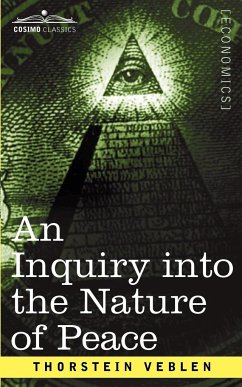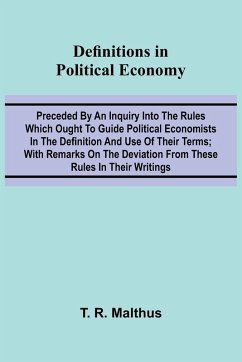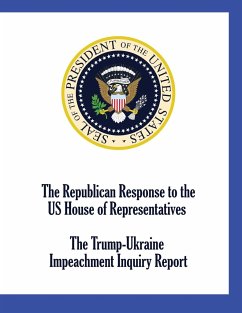
An Inquiry Into the Nature of Peace, and the Terms of Its Perpetuation
Versandkostenfrei!
Versandfertig in 1-2 Wochen
23,99 €
inkl. MwSt.

PAYBACK Punkte
12 °P sammeln!
One of the great thinkers of the early 20th century, American economist and sociologist THORSTEIN BUNDE VEBLEN (1857-1929) is best remembered for coining the phrase "conspicuous consumption." In the waning days of World War I, he turned his expertise on a pressing issue of the day: how to create a lasting, healthy peace, and how industry might contribute to it. In this 1917 book, Veblen explores... . how the concept of patriotism can undermine efforts toward peace . how modern commerce can unify nations . why honor must be sustained by surrendering nations . how war in the 20th century is a ba...
One of the great thinkers of the early 20th century, American economist and sociologist THORSTEIN BUNDE VEBLEN (1857-1929) is best remembered for coining the phrase "conspicuous consumption." In the waning days of World War I, he turned his expertise on a pressing issue of the day: how to create a lasting, healthy peace, and how industry might contribute to it. In this 1917 book, Veblen explores... . how the concept of patriotism can undermine efforts toward peace . how modern commerce can unify nations . why honor must be sustained by surrendering nations . how war in the 20th century is a battle between modes of government and national character . and more. ALSO FROM COSIMO: Veblen's The Vested Interests and the Common Man, The Theory of Business Enterprise, and Imperial Germany and the Industrial Revolution












